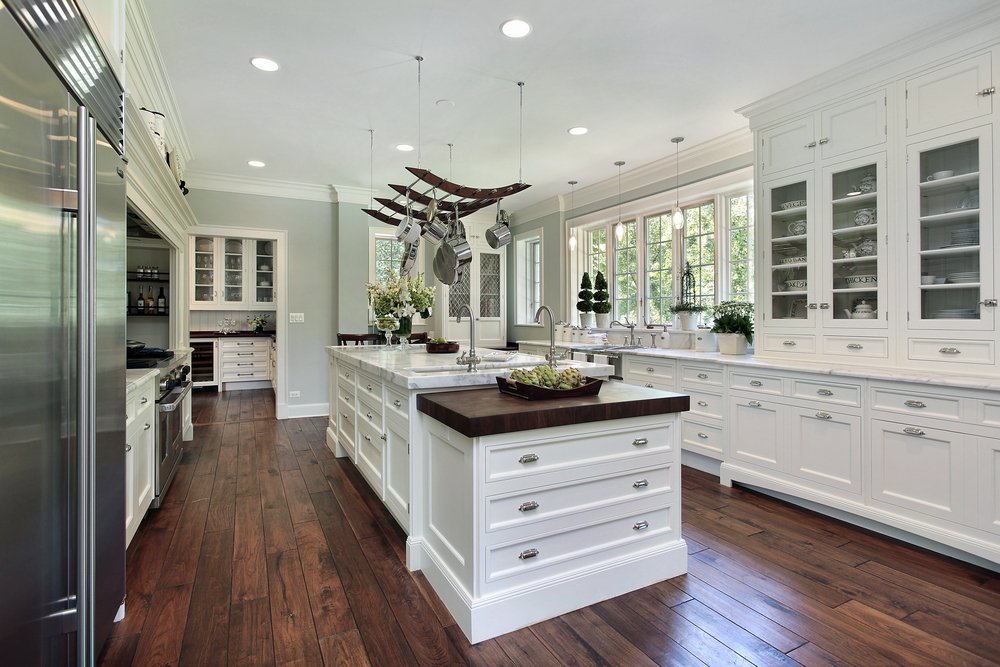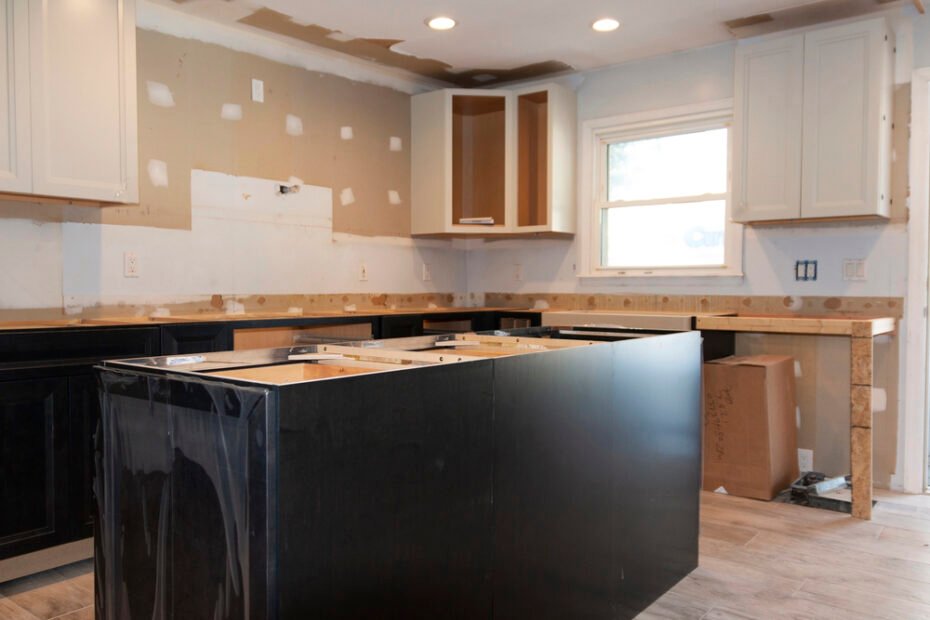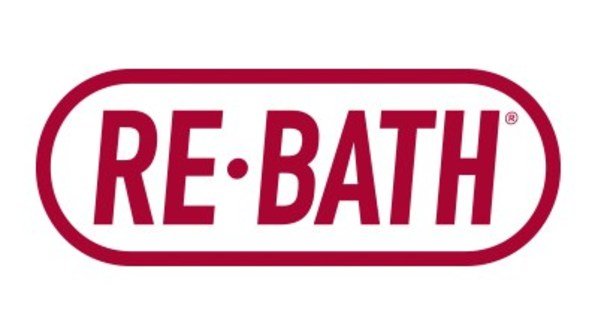You might be wondering about the time needed for a kitchen remodel. A clear understanding of the timeline helps set realistic expectations for this most important home project. Our experience shows that kitchen renovations can take varying amounts of time based on the work to be done.
A complete kitchen remodel usually takes 3 to 5 months when you add new plumbing, electrical work, appliances and finishes. The good news is that smaller updates without changing the floor plan wrap up in just a few weeks. Simple kitchen updates need about 1-2 months, but complex projects with structural changes might stretch to 3-6 months or more.
Your renovation plan should include everything from the original design to the final inspection. Most kitchen renovations take 4-6 months from planning and permits to the finished product, while actual construction needs about 2-3 months. The project’s complexity determines the timeline, so we suggest planning for up to six months. This ensures your dream kitchen becomes real without added stress.
This piece walks you through each phase of kitchen remodeling. You’ll learn realistic timeframes for every step from demolition day to the final inspection.
Planning and Design Phase
The planning and design phase builds the groundwork for your kitchen renovation. This vital first step usually takes 2-8 weeks of your total renovation timeline. Many homeowners don’t realize how important it is. The time you spend planning helps avoid mistakes that can get pricey later.
Define your remodel goals and scope
Before you start demolition, take a moment to imagine your perfect kitchen. Will it be a place for hosting guests, family dinners, or mainly storage? Your kitchen’s purpose should guide every decision you make.
Start by asking yourself these questions:
- Which parts should stay?
- What needs to change or be added?
- Do you need to move plumbing or electrical?
- Are you planning to upgrade or move appliances?
- Should the layout change or walls come down?
Setting a realistic budget is just as important at this stage. Most kitchen remodels cost between $20,000 and $50,000, based on size and materials. Expert advice suggests keeping 10-15% extra for surprise expenses that always seem to pop up.
Hire a contractor or designer
Finding the right contractor goes beyond picking someone with the lowest price or fastest timeline—they’ll be your partner throughout this big project. Research your options carefully, check what others say about them, and talk to several before you decide.
Ask potential contractors about:
- Projects like yours they’ve handled
- Their approach to project delays
- How they stay in touch and their availability
- Their system for permits and inspections
The selection usually takes 2-3 weeks while you do research, meet contractors, look at quotes, and make your choice. A good contractor knows how to keep schedules on track, handle permits, and move your project forward smoothly.
Create a detailed kitchen layout
Your kitchen’s layout shapes how it works and looks. About half of homeowners change their kitchen layout during remodeling. The “work triangle” that connects your sink, fridge, and stove remains the best way to create an efficient kitchen space for cooking, prep, and cleanup.
Kitchen layouts you might like:
- Single-wall: Perfect for apartments
- Galley: Great for narrow spaces with counters on both sides
- L-shaped: The most common choice that works well in corners
- U-shaped: Gives you lots of storage on three walls
- Island: Adds workspace to single-wall or L-shaped designs
Think about how people move through the space, where appliances should go, and storage needs as you finalize the layout. Using 3D design tools helps you see and adjust the space before construction starts.

Select materials and appliances
Your choice of materials substantially affects both cost and timeline. Look at how durable things are, what maintenance they need, how they look, and what they cost. Countertops range from heat-resistant granite to easy-care quartz, each with its own price and features.
Choose your appliances while planning the kitchen design to make sure everything fits and works together. Your designer needs to know early if you want separate wall ovens and cooktops or a range because this changes the cabinet layout. Order materials that take long to arrive early to keep construction moving.
Estimated time: 2–8 weeks
Planning typically takes 2-8 weeks, though complex designs might need 2-3 months. Quick decisions help speed things up—the faster you pick everything out, the sooner materials can be ordered.
The planning phase needs your full attention. Getting your design right, picking materials, and choosing appliances before construction starts helps avoid supply delays and keeps your project on schedule.
Pre-Construction and Permits
Your kitchen design is ready, and now the pre-construction phase starts. This vital stage lays the groundwork for a smooth renovation and helps answer the question of how long does a kitchen remodel take by tackling potential issues early.
Get necessary permits and approvals
Most kitchen renovations need proper permits, especially with changes to plumbing, electrical, or gas lines. Skipping this significant step can lead to serious problems:
- Work might stop completely
- Fees and penalties could reach $25,000 for major violations
- You might need to remove or legalize unauthorized work
- Selling your home later could become complicated
The permit process usually takes 2-4 weeks, but this changes based on your location. Cities often charge about 1% of your total project budget for permits. Your contractor should know what permits your project needs, but homeowners are responsible for following local building codes.
Large kitchen renovations usually need an ALT2 permit (for renovations with multiple types of work that don’t change the building’s use or exits). A final inspection will give a complete record that all work meets local codes—this documentation helps when selling your home or updating insurance.
Order materials that take time to arrive
This phase is when you’ll need to lock in orders for materials that need extra time for manufacturing or shipping:
- Custom cabinetry (usually 6-8 weeks lead time)
- Specialty countertops
- Backsplash materials
- Flooring
- Fixtures and hardware
Order these items at least 3-6 months before your intended start date to avoid delays. Make sure all materials are ordered before demolition starts. Your project manager should create a schedule to time all deliveries perfectly.
Storage needs careful planning—can suppliers hold materials until installation, or do you need space to store them? Talk about this with your contractor before deliveries begin.
Work closely with your contractor
Good communication with your contractor during pre-construction helps prevent delays and confusion. The core team keeps your project moving with careful attention to every detail.
You’ll need to:
- Double-check all selected materials and finishes
- Look over the construction timeline and key milestones
- Plan how to handle any changes
- Set up communication rules (how often, what method, who to contact)
- Plan for changes to your daily routine
“Have patience, make all of your finish decisions all at once, place material orders before beginning the project, and have a set delivery/installation timeline. All of these things will keep your remodel on time, on budget, and within the scope of your sanity.”
Problems should be addressed quickly instead of letting them grow. Regular talks throughout the renovation help maintain a good relationship with your contractor.
Estimated time: 2–6 weeks
Pre-construction usually takes 2-6 weeks, but complex projects or areas with strict permitting might need more time. This includes:
- Permit application and approval: 2-4 weeks average
- Material ordering and first deliveries
- Final planning and scheduling
This phase, often overlooked, plays a big role in determining how long do kitchen renovations take overall. Good preparation now stops expensive delays during construction when labor costs peak and home disruption is highest.
Construction Phase Timeline
Your kitchen remodel gets exciting when the construction phase begins. This moment turns your design plans into reality, and knowing how long does a kitchen remodel take at each stage will help you plan better.
Demolition: 1–5 days
The construction phase starts with demolition, which creates a blank canvas of your kitchen. A typical demolition takes 1-5 days based on your kitchen’s size and layout. Your contractors will remove the existing cabinets, countertops, appliances, flooring, and sometimes walls.
Your team protects the surrounding areas with plastic sheeting and floor covers to control dust and debris. They disconnect utilities and start removing everything. Small kitchens might need just 1-2 days. Complex projects that need structural changes or have plaster walls could take up to a week.
Plumbing and electrical rough-in: 3–7 days
The rough-in work starts right after demolition. This vital stage usually takes 3-7 days. Your plumbers and electricians will set up the basic infrastructure. They’ll run new lines according to your design plan, which becomes important if you’re moving sinks, dishwashers, or adding lights.
Electrical work often needs more time than plumbing, especially in older homes that need updated wiring to meet code requirements. The team will also install mechanical venting systems. Different trades must work in sequence rather than together, so good coordination matters.
Inspections and approvals: 1–3 days
The walls stay open until inspections clear the rough-in work. This part takes 1-3 days, but inspector availability can change this timeline. Most cities need a 24-hour notice to send an inspector.
Inspectors check if all electrical, plumbing, and structural work meets building codes. They’ll give you a list of needed fixes if they find problems. These corrections might add a week or more to your project.
Drywall, painting, and prep: 3–7 days
The drywall phase begins after passing inspections. This stage takes 3-7 days to install insulation, hang drywall, tape, mud, sand, and paint. Professional drywall teams can finish an average project in 7-8 days.
Paint needs proper drying time, which can slow things down in humid weather. All the same, this stage turns your construction zone into a space that’s ready for cabinets and finishing touches.
Installation and Finishing Work
Your kitchen remodel moves into an exciting phase after the walls are prepped and painted. Design choices become reality during this stage. This part represents the final stretch of how long does a kitchen remodel take and brings noticeable changes each day.
Cabinet and countertop installation: 5–10 days
Professional installers can complete basic cabinet installation in 1-3 days for an average kitchen. Custom features or detailed trim work might need up to 5 days.
Countertop fabrication starts once the cabinets are in place. Specialists create a template from your installed cabinets and begin fabrication, which takes 1-2 weeks. The actual countertop installation takes 2-7 hours based on complexity. Granite countertops need 24 hours to let sealants cure properly before use.
Flooring and backsplash: 3–7 days
Material choice and kitchen size determine flooring installation time, which ranges from 3-10 days. Some floors should go in before cabinets, while others work better after. Your contractor will pick the best sequence.
A backsplash usually takes 3-4 days to complete. Tile application is quick, and most time goes to letting mortar and grout dry. A honed marble tile backsplash adds beauty without the glossy look of polished stone.
Appliance installation: 1–3 days
Appliance installation takes 1-2 days after cabinets and countertops are set. Teams connect plumbing, electrical, and gas lines. Professional installers handle standard appliances like refrigerators, dishwashers, ranges, and microwaves quickly.
Final touch-ups and cleaning: 1–2 days
Last-minute adjustments and deep cleaning wrap up the project. Your installer checks everything against your approved design. This final stage includes:
- Installing cabinet hardware and pulls
- Adjusting cabinet doors and drawers
- Cleaning all surfaces
- Removing protective coverings
- Final quality checks
The installation and finishing work typically takes 10-22 days of your kitchen remodel timeline. Each day brings your dream kitchen closer to reality.
Factors That Affect How Long a Kitchen Remodel Takes
Kitchen renovations come with unique timeline challenges. We’ve outlined typical phases, but several factors can make how long does a kitchen remodel take shorter or longer.
Project size and complexity
The size of your kitchen and design complexity will affect renovation timelines. Small kitchens with simple layouts finish faster than larger spaces. Major kitchen renovations that need structural changes might take 6-8 months. Minor updates could wrap up in just a few weeks. Changes to existing layouts, moving walls, rerouting gas lines, or extensive electrical work can make the project run longer.
Custom vs. stock materials
Your choice of materials will substantially affect how long does it take to renovate a kitchen. Here’s what you can expect:
- Stock cabinets: Ready right away or within days
- Semi-custom options: Less waiting time than fully custom
- Custom cabinets: 6-9 weeks to arrive
Custom countertops, detailed tile work, and specialty appliances will add more time. Yes, it is true that waiting for these special-order items can really change how long do kitchen renovations take.
Permit delays and inspections
Each location has different permitting rules. Projects with structural changes usually take 4-6 weeks to get building permits. Some cities can speed up simple renovation permits to just a week. The wait for approvals and follow-up inspections adds extra time. Your project might need several inspections, which affects the schedule.
Contractor availability
The core team of contractors often books months ahead, especially in spring and summer. Your contractor’s schedule plays a crucial role in keeping the project moving. During busy seasons, you might wait weeks before work starts. The way your contractor coordinates different trades will affect how long does kitchen remodel take.
Change orders during the project
Changes during the project can make it run longer. Work stops for each change while paperwork gets done and new materials arrive. These changes might add several weeks, especially if previous work needs redoing. Change orders usually cost 5-10% of your renovation budget, which shows how they affect both time and money.
Wrapping Up Your Kitchen Remodel Trip
A realistic timeline is the most important factor for a successful kitchen renovation. This piece shows that a complete kitchen remodel takes 3-5 months from start to finish. Simpler projects might wrap up in just a few weeks.
The planning phase just needs patience. You’ll spend 2-8 weeks to design your space, pick materials, and find the right contractor – it’s worth the wait. Pre-construction adds another 2-6 weeks to get permits and order materials. Construction moves through several stages, each with its own timeline: demolition (1-5 days), rough-in work (3-7 days), inspections (1-3 days), and drywall/painting (3-7 days). Your vision comes to life during the 10-22 day installation phase as workers put in cabinets, countertops, flooring, and appliances.
Without doubt, your timeline will change based on your project’s scope, material choices, permit rules, and when contractors are free. Custom features add beauty but take more time – handcrafted cabinets alone might take 6-9 weeks to arrive.
Homeowners often find kitchen renovations challenging but end up loving the results. A realistic timeline helps you stay calm during this disruptive time.
Here are some final tips before you start:
- Add 15-20% extra time for unexpected delays
- Get all materials on site before demolition starts
- Keep talking with your contractor
- Figure out how you’ll cook during construction
Kitchen remodels take time, but they revolutionize your home’s function and value. You’ll typically get back 70% of your investment when selling, but a well-designed kitchen brings joy that goes beyond money.
Note that successful kitchen renovations balance quality, cost, and time. You can adjust two of these, but rarely all three at once. A well-laid-out timeline helps create your dream kitchen smoothly – making the trip almost as good as reaching your goal.


